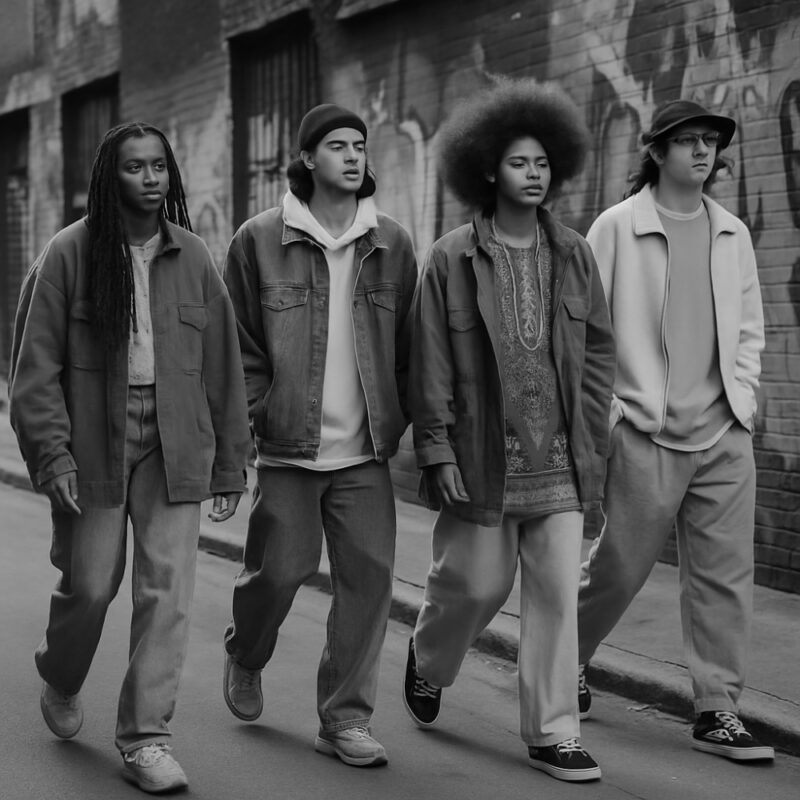-
×
 Have a Nice Day Kids T-Shirt
1 × $111.00
Have a Nice Day Kids T-Shirt
1 × $111.00
The Rise of Streetwear as a Cultural Mirror
Streetwear has evolved far beyond hoodies and sneakers. What began as a niche subculture rooted in skateboarding, hip-hop, and urban communities has transformed into a global movement that mirrors shifting values, social movements, and generational identity. At its core, streetwear today is less about trends and more about self-expression shaped by culture.
Global Influence Is Driving Local Style
One of the most significant cultural shifts in streetwear is the blending of regional and global aesthetics. Thanks to social media and the internet, fashion lovers in Tokyo, Lagos, Paris, and Los Angeles are all part of the same visual conversation. Streetwear designers now pull inspiration from global traditions—think West African wax prints paired with New York-style oversized jackets or Japanese silhouettes merged with vintage Americana. The result is a hybrid style that feels both unique and universal.
Political Statements Are Becoming Personal Style
Cultural movements are also making their mark on what people wear. Clothing has become a way to signal personal values, whether it’s through garments made by ethical brands, slogans supporting social justice, or pieces that nod to heritage and identity. Streetwear is now a canvas for commentary—on race, gender, inequality, and climate. What was once a style for rebellion now represents awareness and activism.
Gender Fluidity Is Changing the Rules
As society embraces broader definitions of gender and identity, streetwear has moved in step. The traditional divide between menswear and womenswear is being dismantled, replaced with oversized silhouettes, layered textures, and neutral color palettes that work for everyone. Major streetwear labels and independent brands alike are releasing unisex collections, while more consumers seek pieces that allow freedom of expression over traditional fit.
Nostalgia Meets the New School
Cultural trends often circle back, and streetwear is no exception. Y2K aesthetics, ‘90s grunge, and even early 2000s mall-core are all being reinterpreted through a modern lens. Young creatives are reviving styles they grew up with—or saw online—and giving them new meaning. The remix culture of today’s generation celebrates vintage as much as it invents what’s next.
Sustainability Is Becoming a Style Standard
Cultural awareness around sustainability has also seeped into streetwear. More brands are turning to recycled fabrics, small-batch production, and transparent supply chains. What once felt like a niche concern now influences purchasing decisions, particularly among Gen Z and younger millennials who view fashion as both art and responsibility. Secondhand platforms and upcycled collections are helping to normalize the idea that being stylish doesn’t require waste.
Streetwear as Everyday Identity
In today’s cultural landscape, what you wear says more about who you are than ever before. Streetwear has become less about belonging to a specific subculture and more about curating an individual voice in a crowded world. It reflects what you believe in, where you’ve been, what you listen to, and even how you want the world to see you. As culture changes, so does the fabric of what we wear—and streetwear remains at the center of that shift.





